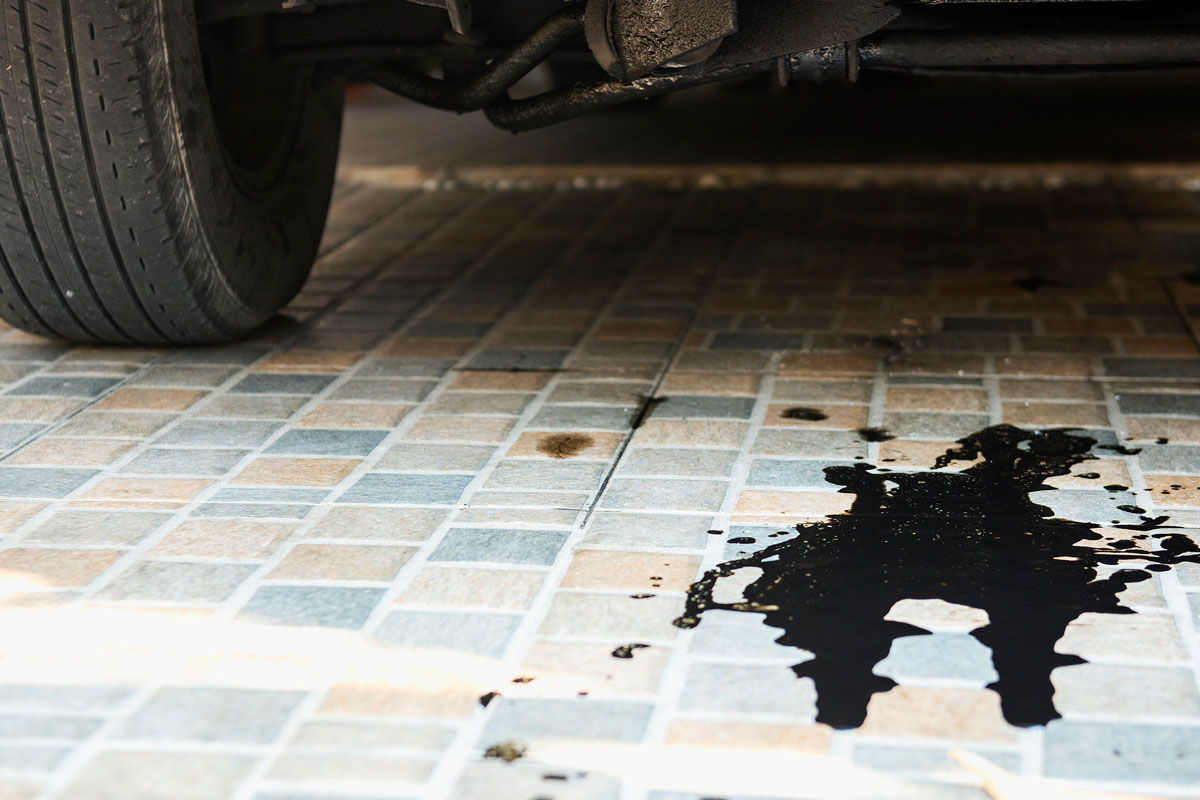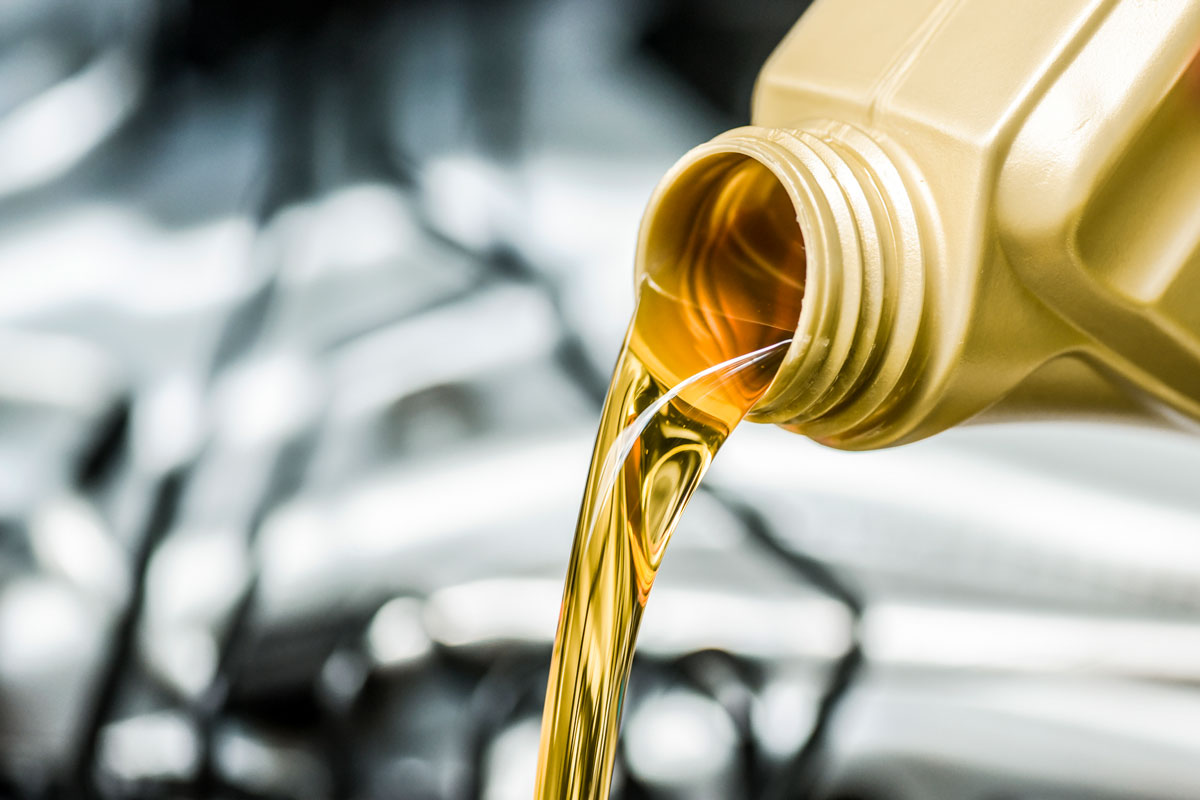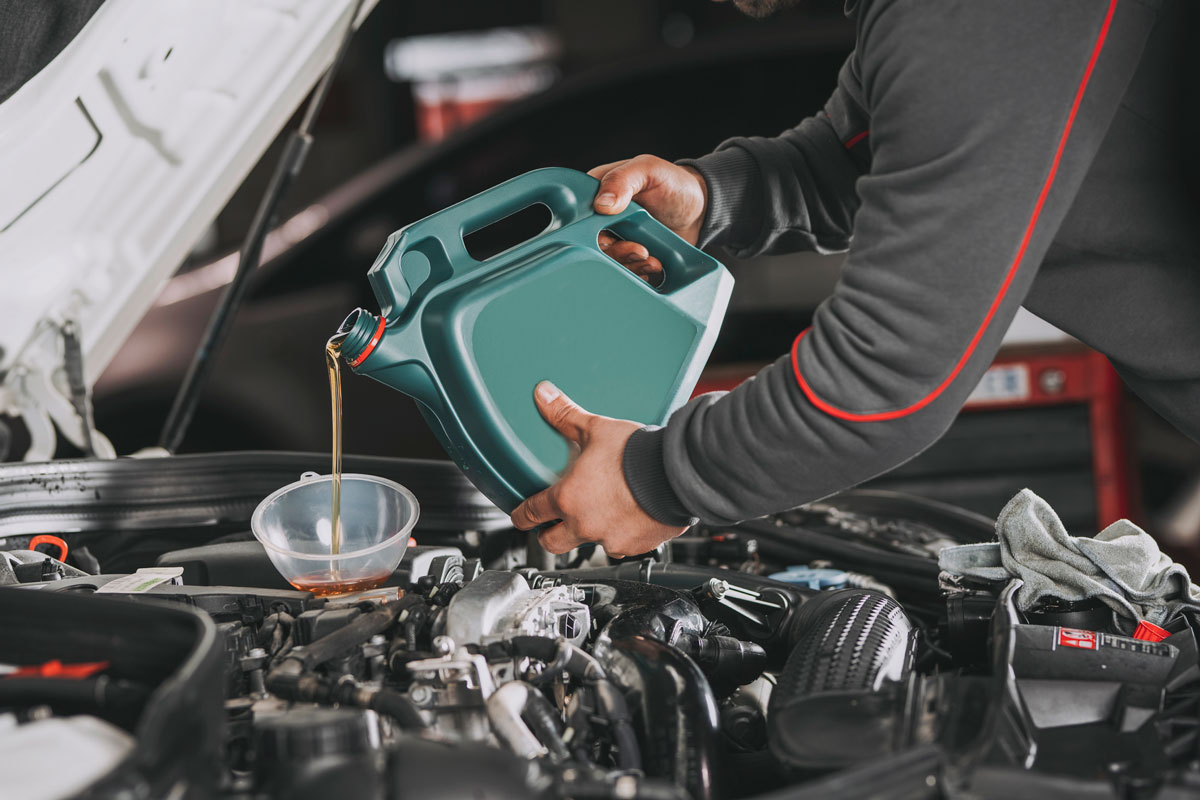When shopping for engine oil, you will notice a variety of brands and weights. Even though you've always used the weight recommended by your owner's manual, you might be tempted to switch to a different one. If you are wondering if you can use 5W20 oil in an engine rated for 5W30, we can help you find that answer. Let's dive right in!
You should never use 5W20 motor oil in an engine that is supposed to use 5W30. Doing so can lead to extreme damage to your engine over time.
Always use the weight that your manufacturer recommends.
Now that we know that you should never put 5W20 engine oil in a 5W30 engine, we'll look closely at why this is a bad idea. You might also be curious if thicker oil is better for high-mileage engines. With that said, let's explore this topic below!

Why You Should Never Use 5W20 Oil In A 5W30 Engine
The viscosity of engine oil is essential to how it functions in the engine. Motor oil will serve two purposes in a vehicle. This fluid acts as a lubricant, keeping the engine's moving parts from sticking and grinding against one another.
Motor oil also helps keep the engine cool. The engine of any vehicle is a hot place. If it gets too hot, this can do expensive damage. The oil helps keep it cooled to the proper temperature and helps keep these parts safe.
The viscosity of the oil plays a significant role in this. The higher the thickness, the thicker the oil. Some engines need a more viscous oil to properly function, while a thicker oil in some will only keep it from doing its job.
If your engine needs the higher viscosity that a 5W30 oil provides, decreasing the viscosity to a 5W20 would be bad.
Using the wrong weight can lead to some pretty serious damage. Here, we'll look closely at what could happen if you use the wrong engine oil weight.
Your Oil May Leak

The oil might not be able to properly cool the engine if it is using oil of the wrong viscosity. When this intense heat occurs, it can damage the gaskets and seals inside the engine.
Should these important parts warp or crack, the oil will leak from them.
Oil leaks are a sign of a bigger problem. And the leaks will not go away on their own. Small leaks will usually grow into much bigger leaks if they are not remedied.
If you notice any fluid leaking from your vehicle, you should thoroughly inspect it as soon as possible.
You Might Hear Unusual Noises
If you use the wrong oil, it will not be able to lubricate all of the engine's moving parts. This could cause some of the gears and other parts to grind.
These noises are a symptom of a bigger problem. You do not want these parts to wear, as they will cause expensive damage to your engine. It could get so bad that you will harm the engine beyond repair.
Treat unusual engine noises seriously. Get them inspected so your engine can get serviced before it's too late.
Your Fuel Economy Might Decrease
In an era of rising fuel prices, fuel economy is an important consideration.
Many ensure they don't drive at excessive speeds, keep their tires inflated, and take other steps to maximize their miles per gallon.
Using the wrong oil weight can eradicate all of your progress. Should the viscosity be wrong for your engine, the engine will have to work harder to operate. The harder it works, the more fuel is spent.
Always use your vehicle's proper engine oil weight for the best fuel economy.
There Could Be A Change In Exhaust Fume Color
The incorrect engine oil weight can cause the oil to dirty much faster. It will generate more carbon, quickly darkening the oil's color.
This, in combination with oil leaking from gaskets, will make the exhaust fumes from your tailpipe change color.
The smoke will darken, turning black. It will also be thicker and have a burnt odor to it.
Is Thicker Oil Better For Higher Mileage Engines?
You might have heard that using a thicker engine oil will help engines with many miles. But this would directly contradict your information earlier in this post.
What advice should you follow?
Nearly every rule has its exception. With motor oil, using a different weight than your owner's manual recommends also has an exception. It's okay to do so with a high-mileage engine. Here is why.
Worn Parts Benefit From Thicker Viscocity
The older an engine gets, the more worn the moving parts will be. The viscosity of the oil recommended by your manufacturer is meant for new or relatively new engines.
This recommended weight might not have enough viscosity to do the job when your engine approaches 150,000 miles.
Recall that viscosity is the measure of how thick the oil is. Elevating the viscosity of the oil, you use with a higher mileage engine will likely be okay and could increase the engine's lifespan.
Doing the opposite, using a motor oil with a LOWER viscosity than what you recommended will do great damage. So pay attention to the weight!
Whether or not this is the right move for your engine will depend on the model vehicle. Consult a trusted mechanic for their professional opinion before you make the switch.

Is It Okay To Use Synthetic Oil In Older Cars?
In recent years, many motorists have been turning to synthetic motor oil. There are many newer model vehicles whose manufacturers recommend this type of oil over the traditional petroleum-based ones.
Synthetic oil is okay to be used in older model vehicles. So long as you are using the proper viscosity, you will not harm your engine. You will be doing yourself a favor by switching to synthetic.

Synthetic Oil Lasts Longer
Synthetic engine oil is more expensive by the quart. But it lasts so much longer.
Whereas the average engine will need the oil changed every 3,000 miles, switching to synthetic will mean oil changes every 5,000 to 10,000 miles, depending on your vehicle's model.
This saves time and money!
Synthetic Oil Is Cleaner
This type of engine oil does not evaporate like traditional oil. That evaporation will help the oil turn darker and thicker over time.
Synthetic oil will not produce the carbon that its counterpart does, helping it stay cleaner.
Because this oil stays cleaner, you can use it a lot longer.

To Finish Up

The decreased viscosity will significantly damage your vehicle if you use 5W20 oil in an engine rated for 5W30. Several problems can arise using incorrect thickness, including reduced fuel economy and oil leaks.
Your engine might benefit from using a motor oil with a higher viscosity after being in service for 150,000 miles or more. Drive safe!
Made it this far? Check out these helpful related oil posts below!
5 Engine Oil Treatment Benefits Every Car Owner Should Know
Will Adding Oil Make Car Start? [And How To Tell If Your Oil Is Low]

If one puts in thicker oil because the engine has done quite a few miles. The problem may occur ie certain parts of the engine, may get oil starvation as the oilways wont be any larger and may even be smaller with oil way silt.